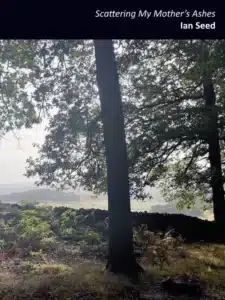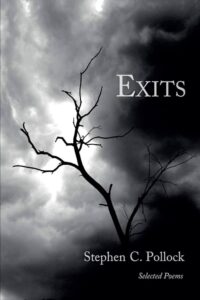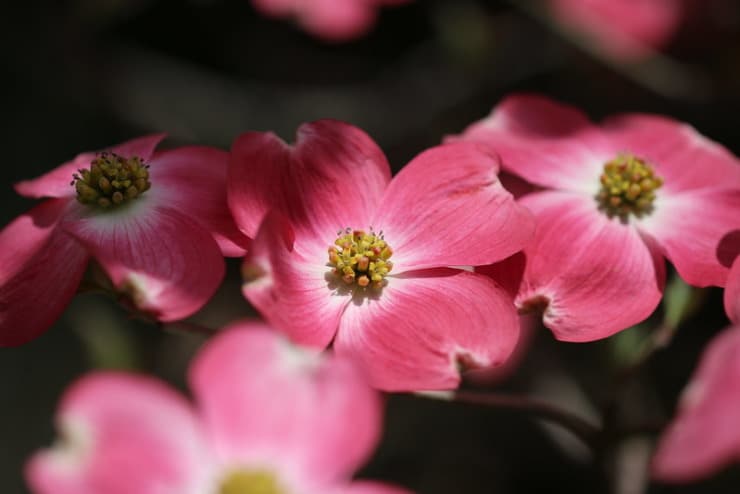Ian Seed and Stephen Pollock consider grief and death.
As I’ve gotten older, things that might have been simply interesting or intriguing, but I didn’t have much time for, have become more significant, sometimes surprisingly so. I “discovered” the importance of art; we now spend considerable vacation and free time at art museums. I read more about art; I buy exhibition catalogs and even read them.
It’s true as well for family history. As I move, or inch, closer to the end of my life, where I and my parents came from has become more important. I discovered genealogical resources online, constructed charts showing my forebears, and tracked down family stories to see if what my father had passed on from his father was true. It’s how I discovered my great-great-grandmother was a descendant of John Alden and Priscilla Mullins of The Courtship of Miles Standish fame (yes, they were real people). And it was how I discovered a treasured memory my father had of his grandfather in the Civil War was, well, mostly fiction (my grandfather may have been a wonderful spinner of tall tales).

Ian Seed

Stephen Pollock
British poet Ian Seed and American poet Stephen Pollock grapple with some of these same themes of grief, death, and the concerns of older selves.
Seed has published four poetry collections: Makers of Empty Dreams (2014), Identity Papers (2016)), New York Hotel (2018), and Night Window (2024). He’s also translated several works from the French, and his poetry has been included in numerous anthologies and literary magazines. But I discovered his writing in a small chapbook, Scattering My Mother’s Ashes, published this year by The Red Ceilings Press.
It might have been the title that caught my attention; my mother had long expressed a desire for cremation upon her death, and the family followed her wishes.
Seed’s chapbook includes two longish poems. “Scattering My Mother’s Ashes” is a prose poem in nine, short parts. The “ashes” being scattered are, first, the memories of his mother, father, and siblings, the life they lived, and his mother’s last days, which included memory problems. The second ashes being scattered are his mother’s physical ones after cremation. If you’ve lost a parent (or both), you know what Seed is experiencing.
The poem that precedes this one in the chapbook is simply entitled “My Mother.” It is a kind of elegy, as Seed describes, or tries to describe, who his mother was.
From “My Mother”:

of Elvis but liked him
singing ‘Never Been to
Spain’ because it reminded
her of going on holiday to
Spain.
My mother who loved Bob Dylan’s
Bringing It All Back Home,
but nothing of Dylan’s that
came afterward.
My mother who loved the novels
of George Eliot, Elizabeth
Gaskell and Jane Austen,
and the poetry of Rupert
Brooke, whom she fancied.
At the end of the poem, we see what Seed has done. He’s given us a picture of who his mother was. It’s a picture by a son, who describes the outward and obvious as a way of getting at the inward and invisible.
American Stephen Pollock was trained as a physician and worked for Duke University as chief of Neuro-Ophthalmology for 17 years. He joined CEC Vision, a company that provides vision benefits, until he retired in 2019.
In 2023, he published Exits, a collection of 20 poems, some shorter and others longer, accompanied by photographs, drawings, and artwork by different artists and photographers. His preface explains what the collection is about: “Every life in finite. Though circumstance and timing may vary, death remains the one inescapable attribute of the human condition. Awareness of this inevitability and recognition of the transient nature of our biological selves profoundly affect each person’s perspective on their life and its meaning.”
I would add that this awareness becomes more acute as we age.
Pollock delves into his theme at a slant, as Emily Dickinson might say. Whether he writes about spiders, leaves, a nasal biopsy, balloons, or dung beetles, we sound find ourselves considering what’s important. Here is how he describes what he finds in a patch of coneflowers.
Seeds

could cull any bloom this garden has grown
yet favored a flowering long past blown,
its petals shriveled, stem brittle and dun
in a coneflower patch where just this one
seemed to wither, wilt and ask to be mown.
The bord plucked the seeds ensconced in the cone,
made it sway the way that metronomes run
till time runs out, till the goldfinch has flown.
One flower spent, the perennials sown—
a fete conceived by the dying and done
(though death, it’s said, may breed oblivion).
So many seeds were borne by each alone,
as many lost with loss of those I’ve known.
Our memories are like seeds, scattered by birds of by the wind, becoming something both like and unlike the flower that produced them. We have no control over which seeds survive and which don’t, but that is part of life.
In my own case, I discovered that at least one seed of memory, tended and nurtured across three generation, didn’t even approximately fit the historical record. The fault for that, as near as I can tell, belongs to my grandfather, who turned his father into something of a heroic figure. By the time I discovered this, I was well into the writing of a historical novel based on the treasured family story. What I decided to do was pursue the memory as handed not, not the one that happened.
The memory had become its own seed.
Photo by alvaroreguly, Creative Commons, via Flickr. Post by Glynn Young.
How to Read a Poem uses images like the mouse, the hive, the switch (from the Billy Collins poem)—to guide readers into new ways of understanding poems. Anthology included.
“I require all our incoming poetry students—in the MFA I direct—to buy and read this book.”
—Jeanetta Calhoun Mish
- “Your Accent! You Can’t Be from New Orleans!” - October 9, 2025
- Poets and Poems: Donna Vorreyer and “Unrivered” - October 7, 2025
- Poet Sidney Lanier and the Lost Cause - October 2, 2025


Leave a Reply